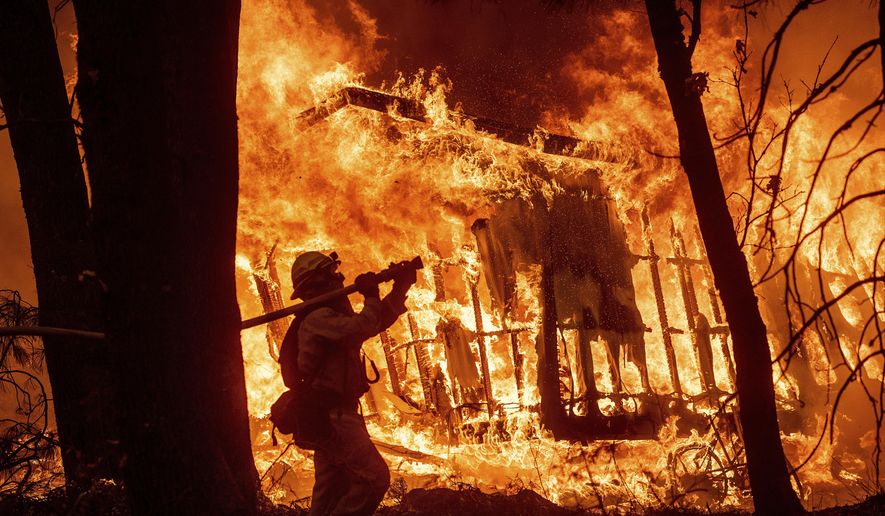As many as 9,300 more people could die each year because of extreme heat or cold related to climate change by the end of this century, the Trump administration said Friday in releasing a massive new report on the controversial issue.
The range of disease-spreading mosquitoes and ticks will expand, as will extreme weather events — all of which will bring additional mental health problems such as depression and even suicidal tendencies, the U.S. Global Change Research Program, made up of 13 federal agencies, said in the “Fourth National Climate Assessment.”
All told, the health problems and other damage and mitigation costs will total hundreds of billions of dollars in drag on the U.S. economy by the end of this century, the experts said.
They also said there is no doubt humans are contributing to global warming.
“Both human and natural factors influence Earth’s climate, but the long-term global warming trend observed over the past century can only be explained by the effect that human activities have had on the climate,” the assessment concluded.
How much warming depends on what steps are taken. If the world can achieve significant reductions in greenhouse gas emissions, warming could be limited to 2 degrees Centigrade. But without those limits, global temperatures could rise 5 degrees or more by the end of this century, compared to where they were before industrialization.
While the report acknowledges some uncertainty about the extent of warming and its damages, the conclusions are mostly grim. The analysts said there may be some aspects of the economy that would benefit from a modest warming, but said the rates and pace the country is looking at are likely to be catastrophic overall.
The report breaks down the various ways that the environment is changing and how each region in the U.S. is being affected by the radical ecosystem shifts. In concluded that weather is becoming more extreme on the coasts as the oceans warm.
Americans most at risk of feeling the impact are already vulnerable populations, such as children, elderly, the poor and some minority communities. The report said they may struggle to adapt to climate-related threats.
“While Americans are responding in ways that can bolster resilience and improve livelihoods, neither global efforts to mitigate the causes of climate change nor regional efforts to adapt to the impacts currently approach the scales needed to avoid substantial damages to the U.S. economy, environment, and human health and well-being over the coming decades,” the report reads.
Among the scariest warnings are the increased mortality estimates because of extreme heat. Under even the lowest scenario, the experts predicted 3,900 more deaths per year by the end of the century, and at the top end it could be as many as 9,300 more deaths.
In Atlanta, that means 349 more people each year would die.
But the experts said if everyone can learn to adapt to weather as if they were in Dallas, those rates could be cut in half.
The report’s dire warning comes as the Trump administration continues to question the validity of climate change.
President Trump last week pointed to record-low temperatures that had been expected in some parts of the country on Thanksgiving.
“Brutal and extended cold blast could shatter all records — whatever happened to global warming?” the president wondered on Twitter.
• Stephen Dinan can be reached at sdinan@washingtontimes.com.
• Gabriella Muñoz can be reached at gmunoz@washingtontimes.com.




Please read our comment policy before commenting.